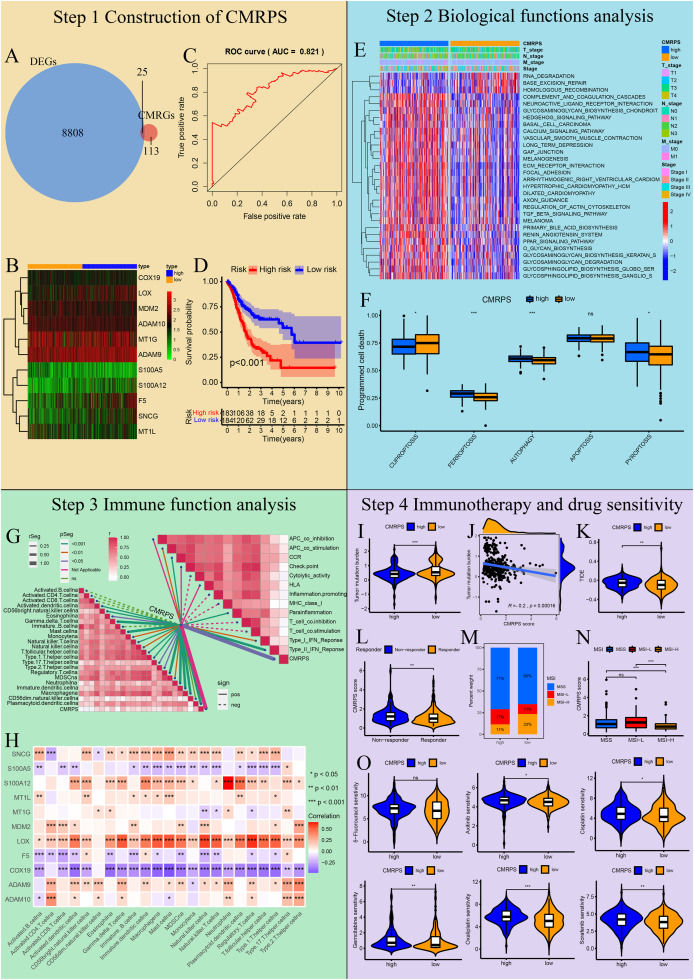
A novel copper metabolism-related signature model for predicting the prognosis, target drugs, and immunotherapy in stomach adenocarcinoma


Stomach adenocarcinoma (STAD) is one of the most common gastric neoplasms with a high death rate. Therefore, there is an urgent need to propose an efficient therapy for STAD. Copper plays key roles in regulating the distribution of immune cells and affecting the tumor immune escape, and may be a novel indicator of immunotherapy in STAD. However, the specific impact of copper metabolism-related genes (CMRGs) on the patient's prognosis, tumor microenvironment, and immunotherapeutic response remains unelucidated.
